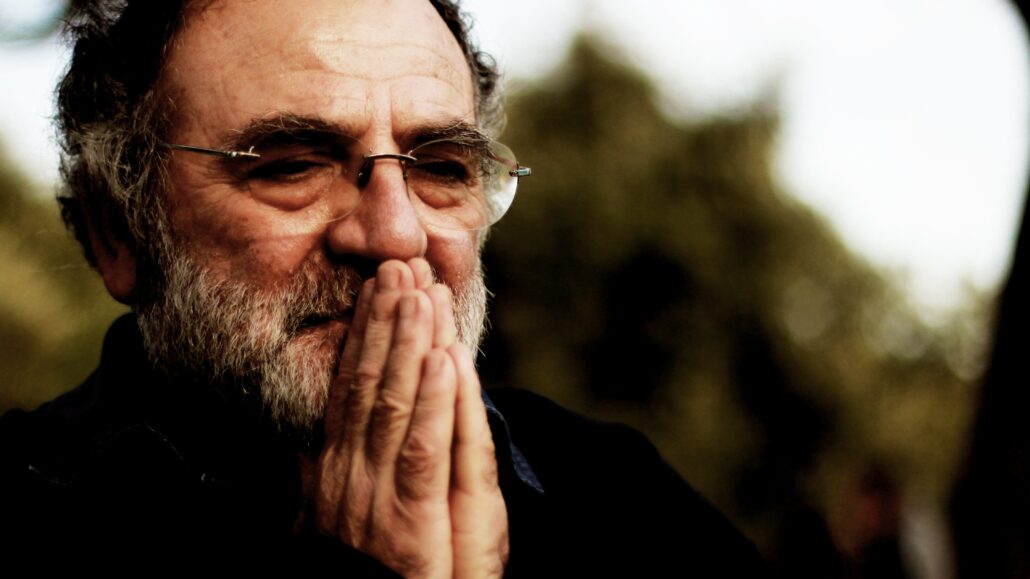How do we begin to meditate? The way of meditation I would recommend is in many ways universal, but also an integral part of the Christian tradition of prayer. In this tradition it is called the “prayer of the heart.” This distinguishes it from either mental prayer or the external forms of worship with which many Christians have come to identify prayer.
Prayer is like a wheel with many spokes. The different spokes represent different forms of prayer—these can be explicitly religious such as those we practice in church, or less obviously so, like walking, exercise, making music, or art. Whatever concentrates our attention in a selfless way can be said to be a form of prayer. The fruit of all prayer is a calmer mind and a more open and compassionate heart. In this way of meditation—praying in the heart, or what Jesus calls the “inner room”—we are not speaking to God or thinking about God or asking God for things. Meditation is not what you think. We are being with God.
The early Christian monks, the desert fathers and mothers, said that meditation was the “laying aside of thoughts.” This means good and bad thoughts, silly as well as wise ones. In meditation we are not trying to have good or better thoughts. If you get an inspired solution to a problem you are troubled by, let it go and it should be there when you finish your meditation (although by then it may not feel so inspired!).
Sit down with your back straight. You can use a straight-backed chair or a cushion or meditation bench. Sit alert and comfortably, so that you can sit still throughout the meditation.

Close your eyes lightly. Begin to repeat a single word or mantra and try to repeat it continuously, faithfully throughout the period of the meditation. When thoughts, problems, plans, memories, fantasies, anxieties, whatever, rise in the mind let them go and return your attention to the mantra.
I recommend the word maranatha. This is an ancient Christian prayer-word but also one that can be used by all, young and old, those with faith and those without. It means “Come, Lord” but we are not consciously thinking of its meaning while we repeat it. If you choose this word say it as four syllables: ma-ra-na-tha. Articulate it clearly in the mind and listen to it as you repeat it.
The simplicity and stillness of the mantra will lead you into the silence that is pure prayer. There is nothing so much like God as silence, according to Meister Eckhart. The simple discipline is to say the mantra from the beginning to the end of the meditation—as best you can. Don’t evaluate yourself. The thought of failure is just another thought to lay aside.
Saying the mantra is the interior form of the discipline of meditation. Actually sitting down to it every day is the outer form. Early morning and early evening are the ideal times but we have to adapt to circumstances. In the morning try to meditate before you check your emails or listen to the news. In the evening, try not to leave the second meditation too late as you may find that the spirit is willing but the flesh is weak. You can also then reread the daily reading from the morning. In this way your meditation practice will help you to find a balance and stability in your daily life, whatever kind of day it has been.
A lot can happen in forty days and forty nights. More useful things will happen if we enter into this period of sweet discipline with open hearts and minds, with conscious attention. It’s not about succeeding, however, but it’s about simply being faithful. That’s when the most interesting, enlivening things happen. It is then that our sense of God is opened, transforming everything.

